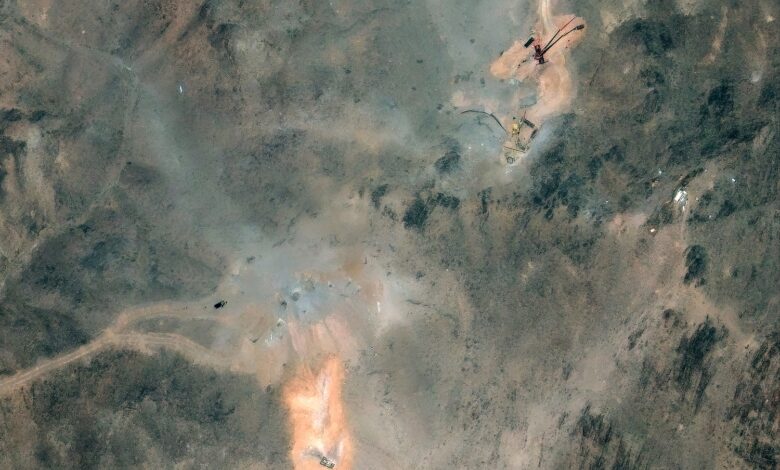News Flash

TEHRAN, July 2, 2025 (BSS/AFP) - Iran on Wednesday officially suspended
its cooperation with the UN nuclear watchdog, a move the world body described
as "obviously concerning".
It comes after last month's 12-day conflict between Iran and Israel, which
saw unprecedented Israeli and US strikes on Iran's nuclear facilities and
sharply escalated tensions between Tehran and the International Atomic Energy
Agency.
On June 25, a day after a ceasefire took hold, Iranian lawmakers voted
overwhelmingly to suspend cooperation with the Vienna-based IAEA. State media
confirmed on Wednesday the legislation had now taken effect.
The law aims to "ensure full support for the inherent rights of the Islamic
Republic of Iran" under the nuclear non-proliferation treaty, with a particular
focus on uranium enrichment, according to Iranian media.
During a daily briefing, the spokesman for the UN secretary general,
Stephane Dujarric, said the Iranian decision was "obviously concerning".
"I think the Secretary-General (Antonio Guterres) has been very consistent
in his call for Iran to cooperate with the IAEA, and, frankly, for all
countries to work closely with the IAEA on nuclear issues," he told reporters.
While IAEA inspectors have had access to Iran's declared nuclear sites,
their current status is uncertain amid the suspension.
On Sunday, Iran's ambassador to the United Nations, Amir Saeid Iravani,
said the inspectors' work had been suspended but denied any threats against
them or IAEA chief Rafael Grossi.
He said the "inspectors are in Iran and are safe", but "their activities
have been suspended, and they are not allowed to access our sites".
Uranium enrichment has long been a core sticking point in nuclear talks
between Tehran and Washington, which have since stalled due to the conflict.
Israel and some Western countries accuse Iran of seeking nuclear weapons --
claims Tehran denies.
- 'Deceptive and fraudulent' -
The law did not specify exact steps following the suspension.
The ISNA news agency cited lawmaker Alireza Salimi as saying the inspectors
now needed approval from Iran's Supreme National Security Council to access
nuclear sites.
Separately, the Mehr news agency cited lawmaker Hamid Reza Haji Babaei as
saying Iran would stop allowing IAEA cameras in nuclear facilities, though it
was unclear if this was a requirement of the new law.
After parliament passed the bill, it was approved by the Guardian Council
and President Masoud Pezeshkian formally enacted the suspension on Wednesday,
according to state television.
In response, Israeli Foreign Minister Gideon Saar urged European
signatories of the 2015 nuclear deal to trigger the "snapback" mechanism and
reinstate all UN sanctions on Iran.
The snapback, set to expire in October, was part of the nuclear accord that
collapsed after the United States unilaterally withdrew from the deal in 2018.
Iran began scaling back its commitments a year later.
Iranian officials have warned the mechanism could prompt their withdrawal
from the nuclear non-proliferation treaty. Israel, widely believed to possess
nuclear weapons, is not an NPT signatory.
Germany's foreign ministry spokesman Martin Giese said Iran's move to
suspend cooperation with the IAEA was a "disastrous signal".
Since the Israeli and US strikes on Iranian nuclear sites, Tehran has
sharply criticised the IAEA for its silence and condemned a June 12 UN
resolution accusing Iran of non-compliance, which Iranian officials say
provided a pretext for the attacks.
On Wednesday, senior judiciary official Ali Mozaffari accused Grossi of
"preparing the groundwork" for Israel's raids and called for him to be held
accountable, citing "deceptive actions and fraudulent reporting".
- Damage -
Iran has rejected Grossi's requests to visit bombed sites, accusing him of
"malign intent", while insisting no threats have been made against him or
inspectors.
Britain, France and Germany and have condemned unspecified "threats"
against the IAEA chief.
Iran's ultra-conservative Kayhan newspaper on Saturday accused Grossi of
being an Israeli spy who should be executed.
On Monday, Iranian foreign ministry spokesman Esmaeil Baqaei said the
parliament vote to halt cooperation reflected the "concern and anger of the
Iranian public opinion".
The 12-day war began when Israel launched a major bombing campaign on Iran
and killed top military commanders and nuclear scientists, with Tehran
responding with waves of missiles and drones launched at Israel.
On June 22, Israel's ally the United States launched unprecedented strikes
of its own on Iranian nuclear facilities at Fordo, Isfahan and Natanz.
More than 900 people were killed in Iran during the conflict, according to
the judiciary.
Iran's retaliatory attacks killed 28 people in Israel, according to
authorities.
President Donald Trump said the US attacks had "obliterated" Iran's nuclear
programme, though the extent of the damage was unclear.
Iranian Foreign Minister Abbas Araghchi has admitted "serious" damage to
nuclear sites.
But in a recent interview with CBS, he said: "One cannot obliterate the
technology and science... through bombings."